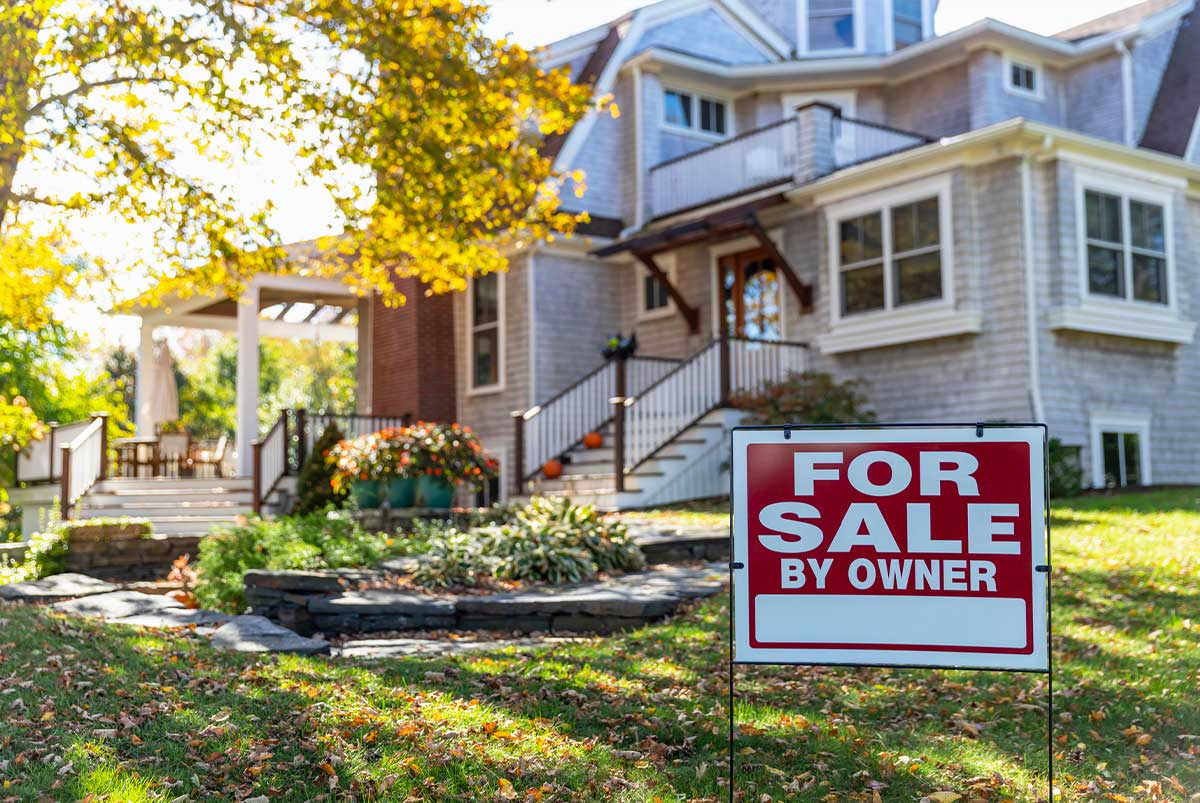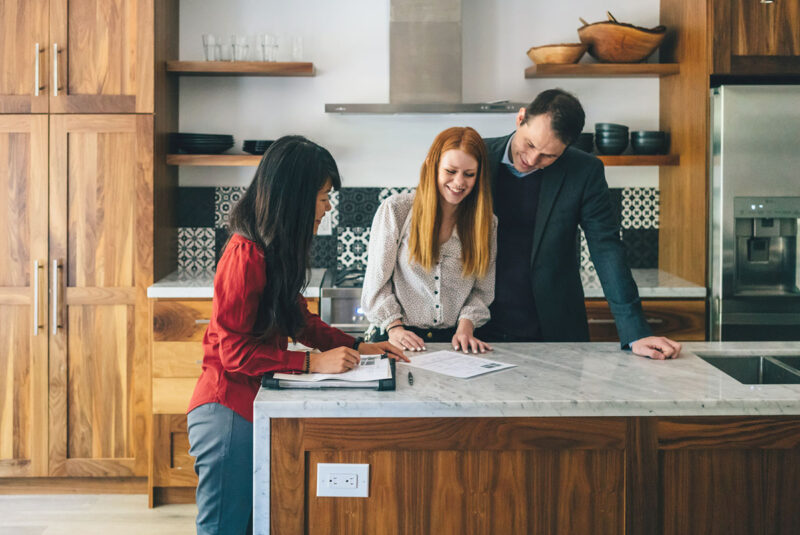Ready To Buy a Home?
Get Approved to Buy a Home
Rocket Mortgage® lets you get to house hunting sooner.
When you’re house hunting, it’s easy to fall in love with a home that feels like a good fit. But finding your dream home should go beyond the feeling a house gives you.
Whether you’re a first-time buyer or an experienced homeowner, you need to ask the right questions about every home you consider and make educated decisions based on your needs and budget. You’ll also need to understand the condition of the home and consider what type of work it may need.
The more homes you look at, the harder it can be to remember what to look for. One easy way to stay organized is with a house-hunting checklist.
What Is a House-Hunting Checklist?
A house-hunting checklist is a list of everything you should consider every time you tour a home. When you explore each home the same way, it’s easier to compare and contrast homes after your walkthroughs.
A good house-hunting checklist can also help you look out for potential red flags or problems before you make an offer or schedule a home inspection.
To make sure that you’ve examined every type of room and home feature, organize your checklist into distinct areas of interest, such as the exterior and interior of the home.
To start, here are two key questions to ask yourself while you’re creating your checklist.
What does the exterior offer?
Your primary focus may be the interiors of the homes you’re considering, but the exteriors can provide valuable clues about how well the house has been maintained. When you’re looking at the outside of the home, focus on:
- Roofs and gutters: Make sure the roof and gutters are in good shape and find out when they will need to be replaced or repaired.
- Doors and windows: Check the seals on all doors and window frames and look for peeling paint.
- Patio/Deck/Balcony: Do the outdoor spaces require a lot of maintenance? Check to see if they’re big enough for your purposes and whether they receive sun.
- Grills and lighting: An electric, gas or propane grill is a great addition to an outdoor space. Any outdoor lighting should be working and well maintained.
- Pool and/or spa: Pools and spas require a lot of regular maintenance. Check their monthly costs and make sure the structures are sound (no cracks) and the plumbing and heating systems are working.
- Fencing and/or backyard: If you have kids or outdoor pets, secure fencing can be an important safety feature. It can also be an aesthetic element affecting the overall look of the property.
- Security: Does the home offer secure fencing, alarms, lighting, video surveillance and other home security features? This may affect your home’s safety and could also affect your homeowners insurance premium.
- Views and aesthetics: You should feel happy when you drive up to your new home and see it waiting for you. And a view can make you feel happy when you’re in your home peering out into the horizon.
- Exterior materials: Check the condition of the siding and assess whether you’ll need to perform extra maintenance, such as painting, cleaning or waterproofing during summers or winters.
- Roof: The condition of the roof can be a key element in deciding whether to bid on a home. Look for signs of leakage and previous water damage and check the condition of gutters, chimneys and downspouts.
What does the interior offer?
The interior of a house can be very attractive, but there’s more to choosing a home than discovering the walk-in closet of your dreams. You also need to pay attention to the condition of the home, its infrastructure and appliances.
There’s a lot to pay attention to when viewing the interior of a home, including:
- Infrastructure: As you tour a home, especially if you’re looking at it for the second time, pay attention to the integrated fixtures and systems. Flip on all the lights, slam the doors, flush the toilets and turn on the faucets to see if the water looks rusty or cloudy. While you’re checking out the plumbing, don’t forget to take a look at the water heater.
- Walls, ceilings and floors: Are the walls, ceilings and floors in good shape? Do they show signs of normal wear and tear or other kinds of damage? Walls with damaged drywall or peeling wallpaper, floors that are warped or ceilings with signs of water damage can cost a lot to replace and may be a sign of structural problems.
- HVAC: Check for central heating and air conditioning; both make a home more pleasant and easier to live in.
- Smart home features: Does the home come with intercoms, lighting and window treatment controls, integrated audio/speakers, home security and home network applications?
- Appliances: The seller should let you know which appliances come with the home. If you aren’t sure, ask about the stove, fridge, dishwasher and washer or dryer.
- Lighting and electrical: Flickering lights can be a sign of deeper electrical problems. If you’re considering an old home, confirm the wiring used in the home’s branch circuit, the size of the electrical panel and whether the outlets are GFCI protected.
- Internet and phone access: Is the house wired for phone and internet access? If that’s a yes, where are the cable, ethernet and phone connections? Also, does the Wi-Fi signal reach every room in the house?
- Living room: You’ll spend a lot of time in your living room and/or family room, so make sure you’ll feel happy there.
- Kitchen: If you love to cook, you probably know what kind of counter space, pantry and storage space you want. Other kitchen amenities to look for include water filtration systems and whether the kitchen is an eat-in kitchen.
- Bedrooms: Choosing a bedroom is a very personal thing. Make sure you can see yourself feeling comfortable in a bedroom. Check out the closets to see if they’ll hold all your stuff.
- Bathrooms: Only you can decide how many bathrooms are enough. Consider whether you want en suite bathrooms with every bedroom or a powder room or guest bath. Run faucets and flush toilets to check out the plumbing.
- Additional rooms: Figure out what extra rooms you’ll want in a home. Maybe you want a formal dining room, a playroom for the kids, a dedicated home office space or specialized rooms, such as a recording studio, an art studio or a guest room.
- Practical rooms: Check out the laundry machines. You might find the washer and dryer in the garage or a dedicated room in the home. If there’s a basement, you should check for mold, mildew and water damage. Some homes come with attics, which can provide extra storage.
- Garage: If you plan on parking in your garage, make sure your car(s) will fit and test the garage door. Check out the possibility of creating a workspace in the garage as well.
- Unpermitted amenities: You might be delighted to learn that the home has an extra half-bath or a home office space that wasn’t included in the property’s listing. But those additions may be unpermitted. If the additions were built without a permit, they could violate building codes and/or be unsafe. Investigate what it would take to bring any unpermitted work up to code.
What Other Questions Should You Ask When House Hunting?
Of course, the house and its condition aren’t the only factors you’ll have to take into account while you’re house hunting. Here are a few vital questions to ask your real estate agent:
- Why are the owners selling? Maybe they’re downsizing or moving because of work. If the owners are selling because the neighborhood is losing value, major employers are leaving town or the schools are inadequate, you’ll need to know.
- When are offers due? You don’t want to lose out on a home because you missed the offer deadline. Make sure you’re ready to make an offer when you start your search and ask your real estate agent to keep you posted on the seller’s expectations and timetable.
- Have other offers been made? You may want to avoid a major bidding war, and you’ll certainly want to know if the seller is already deep in negotiations with another buyer.
- Will the seller make any repairs? Sometimes sellers are happy to make repairs, bring items up to code or reduce the purchase price so you can make any repairs. But sometimes sellers insist on selling their home “as is,” which means they won’t be making any repairs.
- What are the issues with the home? The listing agent for the home is required to tell you about any problems the seller is aware of. Ask early so you can factor the answer into your deliberations.
Take Your Checklist With You
Not sure where to start with your house-hunting checklist? We’ve created a few checklists to help get you started.
Print copies of your property-viewing checklists and fill them out at each open house. You’ll have a handy archive to leaf through and make side-by-side comparisons.
Here are a few sample checklists. There’s one for the home’s exterior, a second for the interior and a third for individual rooms.

Use Our Buyers’ Home-Search Checklist To Find Your Dream Home
Working with a house-hunting checklist puts your best foot forward when you’re looking for a new home. When you know what you’re looking for, you can make smart decisions and keep the process as smooth as possible
Take the first step toward buying a home.
Get approved. See what you qualify for. Start house hunting.
The Short Version
- Whether you're a first-time buyer or this is your second or third home, you need to ask the right questions and make smart decisions based on your needs and budget
- A house-hunting checklist is a list of everything you should consider every time you tour a home
- Your primary focus may be the interiors of the homes you're considering, but the exteriors can provide valuable clues about how well the house has been maintained




